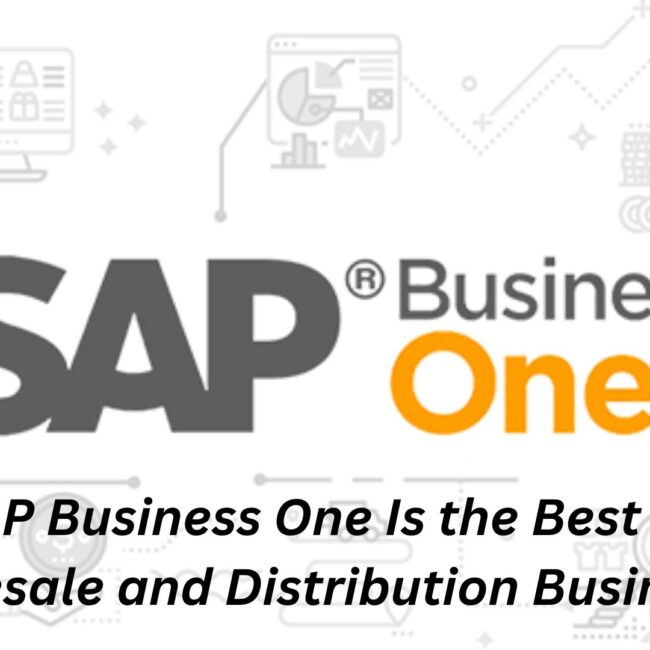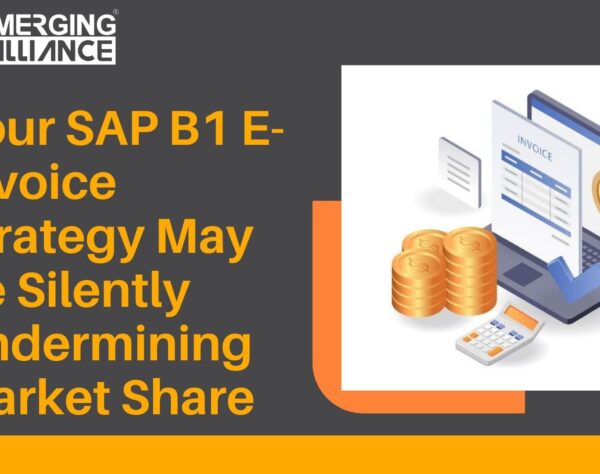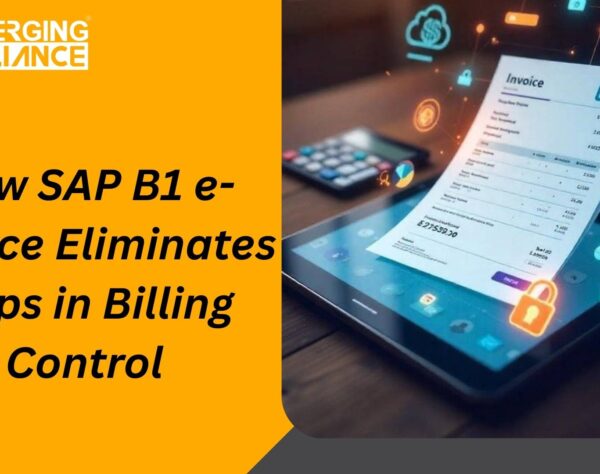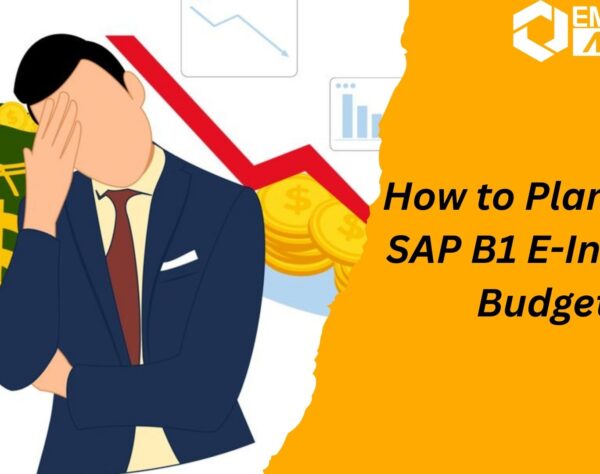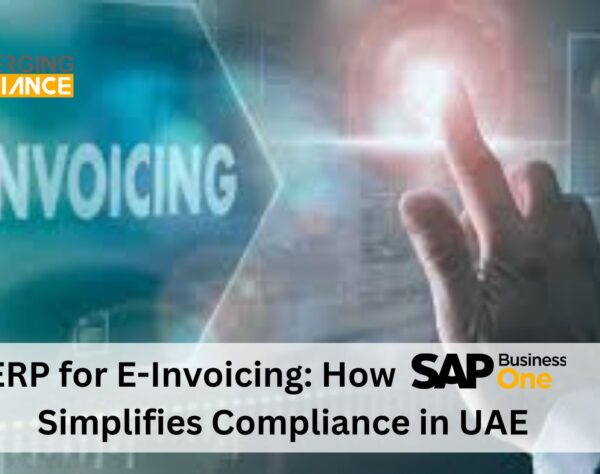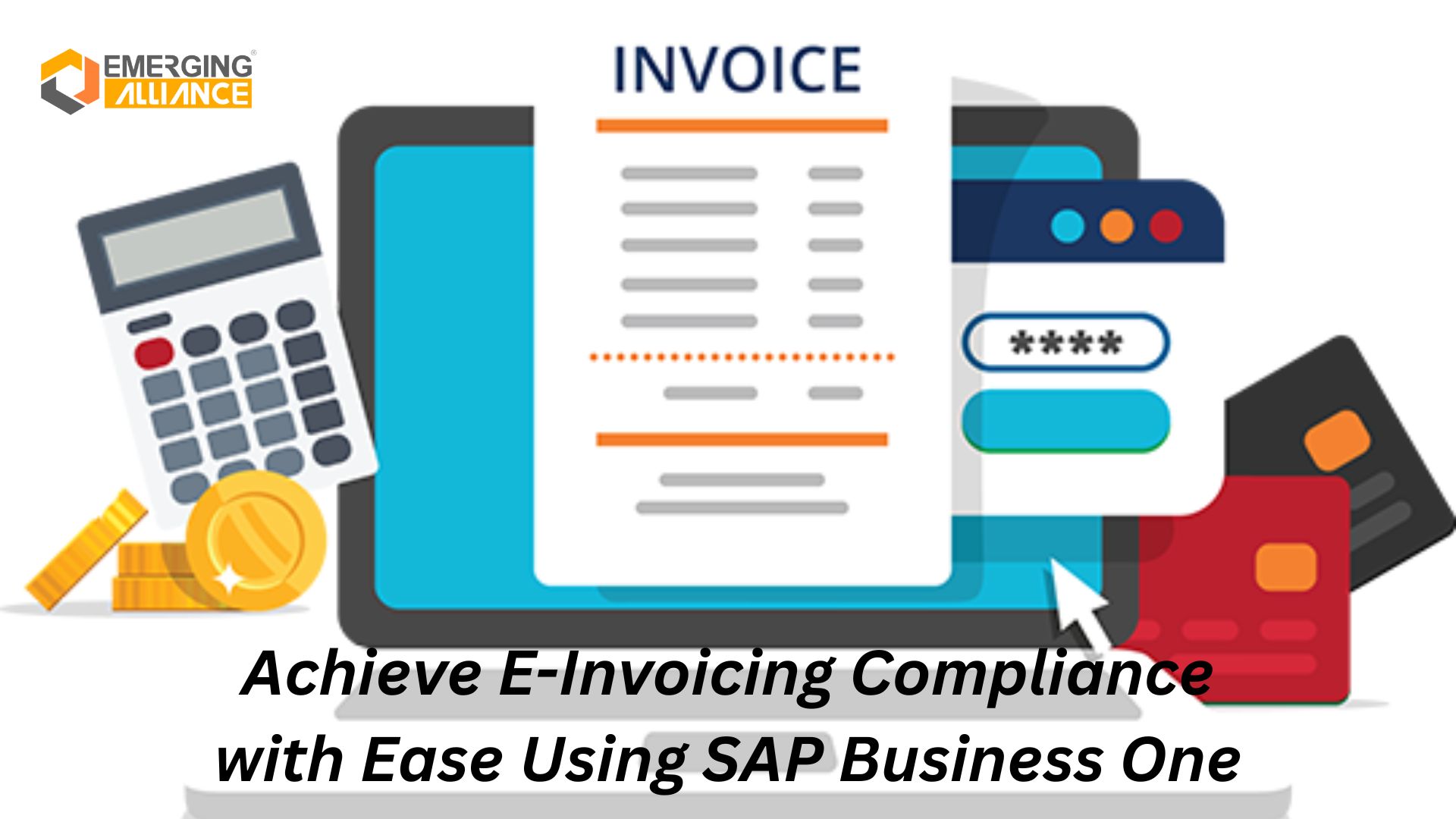
Achieve E-Invoicing Compliance with Ease Using SAP Business One
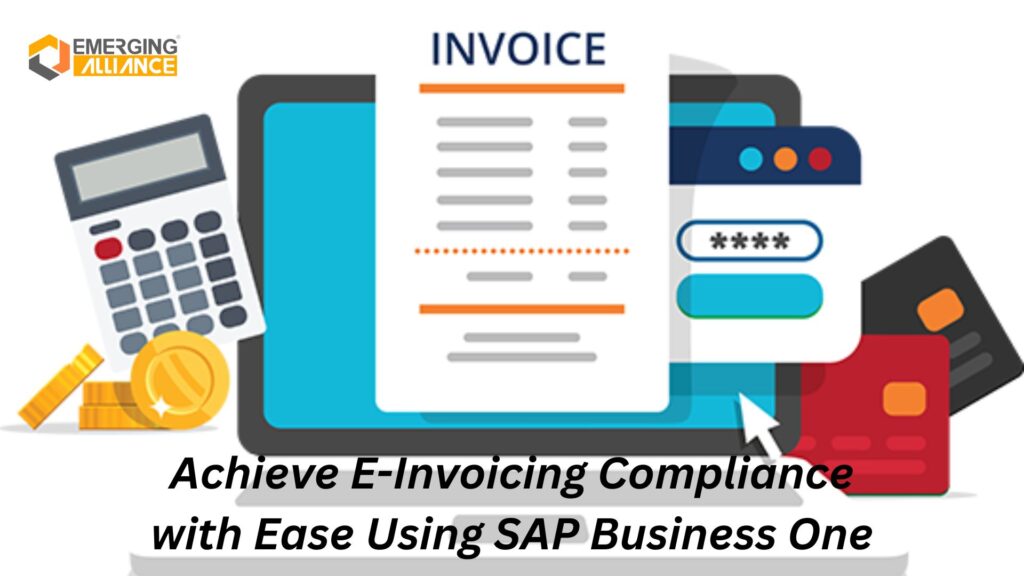
How SAP Business One Simplifies UAE E-Invoicing Compliance
As the UAE accelerates its digital transformation, E-Invoicing is becoming a critical requirement for businesses to ensure tax compliance and operational efficiency. With the Federal Tax Authority (FTA) expected to make E-Invoicing mandatory by mid-2026, it’s essential for businesses to prepare now. This blog explores the UAE E-Invoicing framework, common implementation challenges, and how SAP Business One enables effortless compliance and automation.
📜 The Legal Landscape of E-Invoicing in UAE
The UAE’s move toward mandatory E-Invoicing follows global best practices, aiming to improve tax transparency and reduce VAT fraud. Here’s what’s outlined so far:
- Model Adopted: The UAE is implementing a decentralized “5-Corner” model using the Peppol framework, where invoices are exchanged via Accredited Service Providers (ASPs).
- Mandated Standards:
- Invoices must be in Peppol PINT AE or UBL/XML format.
- Compliant with the official Data Dictionary published by the FTA.
- Timeline:
- 2024–Q2 2025: Accreditation of ASPs and system readiness
- Q2 2025: Legislative framework formalized
- Late 2025: Voluntary adoption phase begins
- July 2026: Mandatory implementation for B2B and B2G transactions
⚠️ Key Challenges for Businesses
Adopting E-Invoicing isn’t just about software—it involves process reengineering and compliance alignment. Here are the top roadblocks companies face:
1. ERP Integration Difficulties
Legacy systems may not support XML or Peppol formats or real-time FTA integration.
2. Data Accuracy Requirements
Invoices must include specific fields like:
- Tax Registration Numbers
- Timestamps
- QR codes
- VAT details
Failure to comply can result in rejected submissions.
3. Onboarding with Accredited Service Providers
Choosing the right ASP and integrating their system into your financial workflow can be complex.
4. Staff Training and Change Management
Teams need to be trained to generate and verify E-Invoices, manage errors, and track real-time invoice statuses.
✅ Why SAP Business One Is Ideal for E-Invoicing Compliance
SAP Business One, a globally trusted ERP for SMEs, is fully capable of aligning your business with UAE E-Invoicing mandates. Here’s how:
🔹 Native Invoice Generation
Built-in templates support PINT AE and UBL/XML standards for error-free invoice creation.
🔹 Seamless ASP & FTA Integration
SAP B1 connects easily with Accredited Service Providers for real-time invoice exchange and submission tracking.
🔹 Auto-Validation Before Submission
Automatically checks invoices for completeness, tax accuracy, and formatting to avoid FTA rejections.
🔹 Secure Invoice Archiving
Invoices are digitally stored in encrypted formats, ensuring easy retrieval for audits and compliance checks.
🔹 Real-Time Dashboards
Monitor submission status, compliance KPIs, and VAT liability using SAP integrated analytics features.
🔹 Scalable & Future-Ready
Whether FTA updates formats or expands coverage, SAP Business One can quickly adapt with minimal disruption.
🚀 Step-by-Step: Getting eInvoicing Ready with SAP Business One
1. System Assessment
Evaluate current ERP compatibility with UAE Peppol framework and invoice standards.
2. Configuration & Customization
Import invoice formats, validation logic, and ASP integration settings into SAP B1.
3. Internal Testing & Pilot Run
Run test cycles with mock invoices and track issues using SAP B1 audit trail tools.
4. Go Live with Accredited ASP
Connect with an authorized ASP for real-time exchange and begin live submission to the FTA.
5. Ongoing Monitoring & Compliance
Stay updated with FTA rule changes and continuously monitor invoice health using dashboards.
💡 Strategic Benefits Beyond Compliance
- Faster Payment Cycles – eInvoices accelerate invoice delivery and approval.
- Zero Manual Errors – Structured data entry and validations eliminate human mistakes.
- Audit-Readiness – Digital records with audit trails ensure smooth inspections.
- Scalability – Built to grow with your business and regulatory environment.
📌 Frequently Asked Questions (FAQs)
1. What is E-Invoicing and why is it important in the UAE?
E-Invoicing refers to the electronic generation, submission, and archiving of tax invoices in a standardized digital format. In the UAE, it’s becoming mandatory by 2026 to enhance VAT compliance, reduce fraud, and streamline audits.
2. When will E-Invoicing become mandatory in the UAE?
The UAE Federal Tax Authority (FTA) has announced that E-Invoicing will be mandatory starting July 2026 for B2B and B2G transactions. A voluntary adoption phase is expected to begin by late 2025.
3. What format is required for E-Invoices in the UAE?
Invoices must follow the Peppol PINT AE or UBL/XML format and include mandatory fields such as TRN, invoice timestamp, VAT amount, and QR codes — as specified in the FTA’s Data Dictionary.
4. What is an Accredited Service Provider (ASP) in UAE E-Invoicing?
An ASP is a certified intermediary authorized by the FTA to route E-Invoices between businesses and the government in a secure, compliant manner using the Peppol network.
5. Can SAP Business One handle UAE E-Invoicing requirements?
Yes. SAP Business One offers full support for UAE E-Invoicing model — including real-time invoice generation, Peppol format compliance, ASP integration, automated validation, and digital archiving.
6. How does SAP B1 validate invoices before submission?
SAP Business One includes pre-built validation rules to check for required fields, correct VAT calculations, and XML formatting — reducing the risk of invoice rejection by the FTA.
7. Is it necessary to integrate with an ASP to comply with UAE E-Invoicing?
Yes. Businesses must connect their ERP or invoicing system (like SAP B1) to an FTA-approved Accredited Service Provider to legally send and receive E-Invoices.
8. What are the benefits of using SAP Business One for E-Invoicing?
SAP B1 simplifies compliance by:
- Automating invoice creation and validation
- Integrating directly with ASPs
- Providing audit-ready invoice storage
- Offering dashboards to track submission status and VAT exposure
9. Can SMEs in the UAE afford SAP Business One for E-Invoicing?
Yes. SAP Business One offers modular and scalable pricing tailored for SMEs, making it an affordable and future-proof choice for E-Invoicing and end-to-end ERP needs.
10. What are the penalties for non-compliance with UAE E-Invoicing laws?
While exact penalties are yet to be announced, non-compliance may lead to invoice rejections, audit flags, financial penalties, and disruption in tax reporting or business operations.
📣 Final Thoughts
The UAE E-Invoicing mandate is not just about tax — it’s about streamlining business operations, improving data transparency, and future-proofing your financial systems. By choosing SAP Business One, you ensure that your company is equipped with a powerful, compliant, and scalable solution that handles everything from invoice creation to real-time FTA submission.
Act now. Stay compliant. Grow smart — with SAP Business One.



